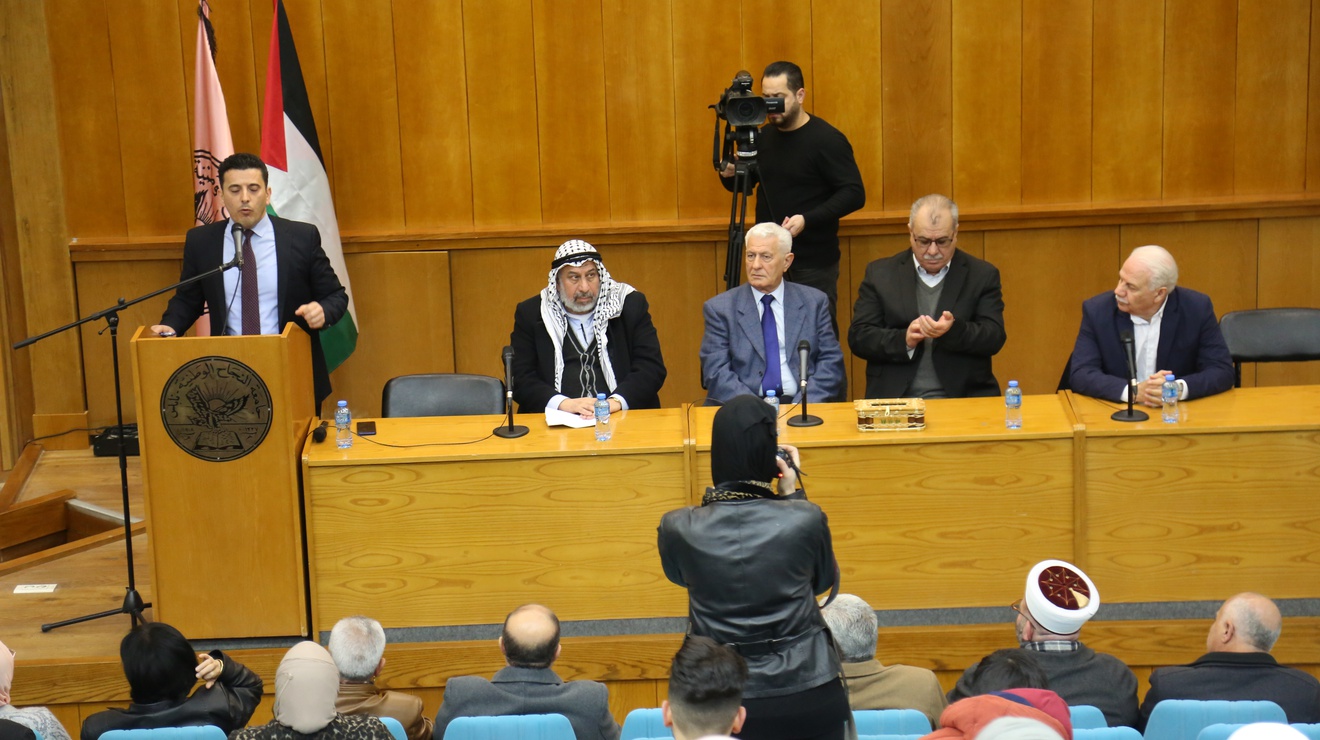Workshop about the ‘Deal of the Century’

An-Najah University conducted a workshop titled: ‘the options of the Palestinian people facing the Deal of the Century’, in partnership with Hawa’ Center and Yaffa Cultural center. The workshop aimed to create dialogue over the terms and impact of the deal, and create a link between youth and decision makers, in order to raise the voice of youth in different political and national issues.
Dr. Amjad Abu Al-Izz, Lecturer at the Political Science Department, opened the workshop and stressed on the importance of organizing interactive sessions that bridge the gap between university students and political leaders.

Ghada Abdel-Hadi; the Director of Hawa’ Center for Culture and Arts; stressed on the importance of cooperation between the Center and An-Najah University, to create dialogue with distinguished guests to discuss key national subjects.
Through the workshop, Dr. Omar Abed Razik; Lecturer at the Department of Economics, talked about the dangers that face the Palestinian people due to the proposition of the Deal of the Century or the attempt of implementing it. Dr. Abed Razik confirmed the need for a unified Palestinian position against the proposed plan to weaken the Palestinian cause.

Discussing the approach to counter this deal, Mr. Abbas Zaki; member of the Central Committee for Fatah, highlighted that this deal violates international laws about the right of nations for self-determination and live with peace and dignity.
On the other hand, Mohammad Baraka, Chairman of the high follow-up committee for Arabs in the 1948 lands, mentioned that the Palestinians in 1948 lands are an inseparable part of the Palestinian people in their aspirations, noting that this deal is merely a result of the overall status of weakness among the Arab world.

Omar Shehadeh, a leader from the Palestinian Popular Front for the Liberation of Palestine, called for implementing Palestinian unity and ending the internal split, in order to give youth hopes for the future.
The workshop included several questions and comments by attending students, which enriched the dialogue between them and the decision leaders.







